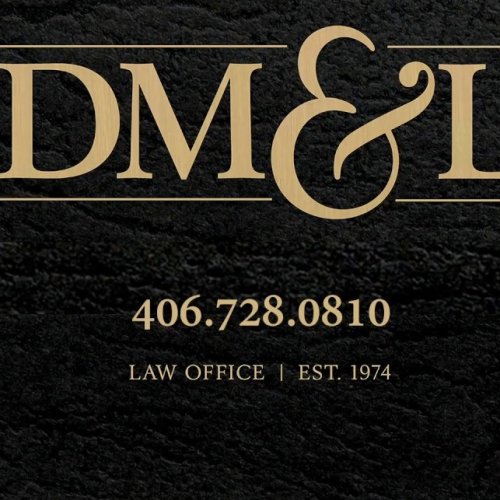Best Child Visitation Lawyers in Hamilton
Share your needs with us, get contacted by law firms.
Free. Takes 2 min.
Free Guide to Hiring a Family Lawyer
List of the best lawyers in Hamilton, United States
About Child Visitation Law in Hamilton, United States:
Child visitation law in Hamilton, United States pertains to the rights and responsibilities of parents or guardians to spend time with their child or children after a separation or divorce. It focuses on establishing a visitation schedule that promotes the best interests of the child while considering the rights of both parents.
Why You May Need a Lawyer:
There are various situations where you may need a lawyer to assist you with child visitation matters:
- If you are unable to reach an agreement with your ex-partner on a visitation schedule
- If you believe the current visitation schedule is not in the best interests of your child
- If you need to modify an existing visitation order
- If you suspect the child is being exposed to harmful or dangerous situations during visitation
- If you want to understand your rights and responsibilities regarding child visitation
Local Laws Overview:
In Hamilton, United States, the laws regarding child visitation aim to protect the child's well-being while considering the involvement of both parents. Some key aspects of local laws relevant to child visitation include:
- Visitation is typically awarded based on the best interests of the child
- The court may consider the child's age, health, relationship with each parent, and stability of the parents' homes when determining visitation
- Visitation schedules can be flexible or structured, depending on the circumstances
- The court may order supervised visitation if it is deemed necessary for the child's safety and well-being
- Parents are encouraged to communicate and cooperate with each other to create a visitation schedule that meets the child's needs
Frequently Asked Questions:
Q: How is child visitation determined in Hamilton, United States?
A: Child visitation is typically determined by the court based on the best interests of the child. The court may consider factors such as the child's age, health, and relationship with each parent.
Q: Can visitation rights be modified?
A: Yes, visitation rights can be modified if there is a significant change in circumstances or if it is in the best interests of the child. A lawyer can help you navigate the legal process for modifying visitation rights.
Q: What if my ex-partner is not following the visitation schedule?
A: If your ex-partner is not following the visitation schedule, you may need to seek legal assistance. A lawyer can help you enforce the visitation order and protect your rights as a parent.
Q: What is supervised visitation?
A: Supervised visitation is when visits with the child are supervised by a neutral third party or a professional agency. It may be ordered if there are concerns about the child's safety or well-being during unsupervised visits.
Q: Can grandparents have visitation rights in Hamilton, United States?
A: In certain circumstances, grandparents may be granted visitation rights if it is determined to be in the best interests of the child. The court considers factors such as the strength of the grandparent-grandchild relationship.
Additional Resources:
If you need further information or legal assistance regarding child visitation in Hamilton, United States, consider contacting the following resources:
- Hamilton Family Court
- Hamilton Bar Association
- Legal Aid Society of Hamilton
Next Steps:
If you require legal assistance in child visitation matters in Hamilton, United States, here are the recommended steps to take:
- Evaluate your situation and determine if legal guidance is necessary
- Research and choose a reputable lawyer with experience in child visitation cases
- Schedule a consultation with the lawyer to discuss your case
- Provide all relevant information and documents to your lawyer
- Follow your lawyer's guidance throughout the legal process
Lawzana helps you find the best lawyers and law firms in Hamilton through a curated and pre-screened list of qualified legal professionals. Our platform offers rankings and detailed profiles of attorneys and law firms, allowing you to compare based on practice areas, including Child Visitation, experience, and client feedback.
Each profile includes a description of the firm's areas of practice, client reviews, team members and partners, year of establishment, spoken languages, office locations, contact information, social media presence, and any published articles or resources. Most firms on our platform speak English and are experienced in both local and international legal matters.
Get a quote from top-rated law firms in Hamilton, United States — quickly, securely, and without unnecessary hassle.
Disclaimer:
The information provided on this page is for general informational purposes only and does not constitute legal advice. While we strive to ensure the accuracy and relevance of the content, legal information may change over time, and interpretations of the law can vary. You should always consult with a qualified legal professional for advice specific to your situation.
We disclaim all liability for actions taken or not taken based on the content of this page. If you believe any information is incorrect or outdated, please contact us, and we will review and update it where appropriate.








